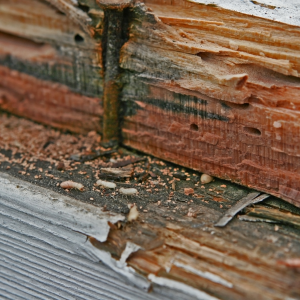
Seller Didn’t Disclose Termite Damage in Texas: Disclosing Termites and Legal Disclosure When Selling
Are you in a situation where a seller in Texas failed to disclose termite damage during a property sale? Understanding your rights and obligations is critical in such cases, as termite infestations can result in significant structural damage and financial consequences. Texas law requires the disclosure of known defects, including termite issues, and failure to do so can result in legal disputes. Explore our comprehensive guide to learn about the importance of termite disclosures, buyers’ legal options, and how sellers can ensure compliance to avoid potential lawsuits. Protect your investment by staying informed and proactive.
Understanding Termite Damage and Seller Obligations in Texas
Understanding termite damage and seller disclosure obligations can protect both parties when selling a Texas home. Texas sellers must disclose material defects, including termite issues. This obligation is essential to real estate transactions because it ensures transparency and prevents legal issues. Before listing their home, sellers should know what a comprehensive seller’s disclosure entails.

Unreported termites can cause significant structural damage to a home. Texas law requires sellers to complete a disclosure form describing the home’s condition and pest history. By filling out this form thoroughly, the seller helps the buyer assess the home’s condition before buying.
Sellers who fail to disclose termite damage or infestations risk legal consequences. In Texas, a buyer who discovers undisclosed damage after the sale may sue the seller for non-disclosure. This scenario affects the seller financially and their real estate reputation. To avoid this, Texas sellers must disclose all relevant house condition information to potential buyers.
Termite damage, sometimes hidden, can weaken structural beams, flooring, and wooden furniture. Thus, sellers must thoroughly inspect their property before listing it. A professional termite inspection can reassure sellers and provide evidence for their disclosure form. Correct disclosure builds trust between seller and buyer and protects the seller from misleading claims.
A real estate seller must disclose all relevant information about a home in addition to transferring ownership. Texas sellers demonstrate good faith and honesty by following seller’s disclosure laws, which are essential to their real estate reputation. Real estate law consulting firms can advise sellers on legal obligations and disclosure requirements.
The Role of Disclosure in Texas Real Estate Transactions
Texas real estate transactions depend on disclosure to ensure transparency and protect buyers and sellers. Texas’s strict estate law requires sellers to disclose known defects or issues that could affect a property’s value or desirability. Termite damage can greatly affect a home’s structural integrity and aesthetic appeal. Selling without disclosing termite damage or infestations can result in lawsuits or compensation claims from buyers relying on the transaction. Sellers should carefully evaluate and disclose all property information to avoid disputes and liability. Disclosure benefits buyers and sellers.

By following Texas real estate disclosure laws, sellers can avoid legal issues, protect their reputation, and streamline transactions. Attorneys, agents, and home inspectors must ensure accurate disclosures in real estate transactions. An experienced real estate attorney can advise you on Texas disclosure laws and help you navigate complex disclosure issues. Sellers of Texas real estate must disclose any known defects, including termite issues. Disclosure forms are not only legal but also ethical. So they can make informed decisions, homebuyers trust sellers to disclose all relevant property information. Before listing the property, sellers should have a professional home inspection and fix any termite damage to avoid legal issues.
In addition, real estate professionals help ensure transparency. Realtors must act ethically to ensure smooth, transparent transactions for all parties. Real estate agents can help sellers understand the disclosure process and identify areas that need more information. Professional real estate lawyers can also advise sellers on how to avoid incomplete disclosures. Disclosure is crucial in Texas real estate transactions. Disclosure requirements are crucial for buyers and sellers seeking a dream home or a profitable sale. An experienced estate law attorney can ensure that disclosures comply with legal standards and the transaction is fair and honest. This protects against future disputes and boosts Texas real estate market confidence.
Legal Implications of Failing to Disclose Termite Issues
A Texas seller who fails to disclose termite damage faces serious legal consequences for both the seller and the buyer. A seller who doesn’t disclose a defect may violate legal obligations. Texas law requires sellers to disclose material defects like termites during a real estate transaction. Selling without doing so can expose the seller to legal action from buyers discovering these issues after purchase. The buyer can hire a lawyer to litigate and seek damages or overturn the purchase agreement. A buyer’s attorney will assess the termite defects and the seller’s failure to disclose them to determine legal action.

Sellers need a real estate attorney to avoid termite claims. Expert attorneys will document and report all potential defects. In addition, skilled lawyers can help sellers understand their liability and the legal consequences of not disclosing termite issues. In discussions with the buyer’s lawyers, lawyers can offer strategic advice to reduce legal risk.
Failure to disclose termite defects can hurt a seller’s finances and reputation. Unearthing such matters can lead to costly court battles where the buyer’s attorney claims the seller withheld critical property information unethically. Texas courts may award significant damages to buyers who can prove a deliberate attempt to hide defects. Such a case can be costly for sellers, especially without skilled lawyers. Therefore, it’s important to understand the legal implications and disclose any property issues.
Termite inspections and defect disclosure must be proactive by sellers. A lawyer who can correctly interpret legal documents is helpful in complex legal proceedings. In non-disclosure cases, Texas allows buyers to sue and sellers to fix it with competent attorneys. Hire a real estate lawyer to ensure a more transparent transaction, reduce the risk of future disclosures becoming legal battles, and protect the seller’s and buyer’s interests. During the property selling process, a dedicated attorney or team of lawyers is essential to ensure legal compliance, which benefits all parties.
Exploring Undisclosed Termite Damage and Potential Consequences
Texas homeowners may face unexpected costs and structural damage from termite damage. If sellers don’t disclose a termite infestation, they risk legal action and a property defect. Such neglecting disclosure requirements violates the purchase agreement, which requires honesty and transparency. Disclosure protects all parties by providing useful information to prospective buyers and encouraging informed decision-making.

Sellers who fail to disclose termite damage may lose the sale agreement. If this happens, the buyer may nullify the purchase, reclaim payments, and seek legal action. If the seller knew about the termites and intentionally didn’t tell the buyer, they can rescind. Detailed inspection reports, testimonies, or any written notice that matches the disclosure timeline can prove this. Consumers in these situations should consult lawyers to explore their options.
Undisclosed termite damage that becomes an infestation may deter buyers from buying, risking the seller’s money. Grumpy buyers often call to sue the seller for non-disclosure. These messages often seek settlements or repair compensation. Therefore, sellers must invest in thorough termite inspections and open communication.
A seller illegally concealing termite issues was sued. The court found that the seller received multiple inspection reports but did not notify the buyer. In this bad faith case, the buyer won, demonstrating the legal requirement for full transparency. It costs Texas sellers money to ignore such defects, reputation, and real estate market damage.
Remember that failing to disclose threatens current transactions and tarnishes one’s standing as a seller. From past cases, sellers should inform buyers of every defect, including termite damage, to maintain integrity. Legitimate practices give clients peace of mind and boost buyer confidence. Buyers are more likely to buy in transparent transactions, reducing legal risks and fostering goodwill.
What Texas Home Sellers Must Disclose to Protect Their Interests
Understanding Texas home sellers’ disclosure requirements is essential to protecting their interests and avoiding legal issues. Texas real estate sellers must disclose property conditions to ensure an honest sale. To reduce dispute risks, sellers must disclose termite damage. Failing to disclose important information can disrupt a sale and result in costly lawsuits from unsuspecting buyers. In light of these factors, sellers must embrace transparency as their best defense. In addition to protecting buyers, the disclosure process helps sellers build their real estate business reputation.

Sellers in Texas should use JustAnswer to understand their obligations. Listing termite damage accurately protects sellers’ interests and ensures a smooth sale. Sellers with the right information can best protect themselves legally in real estate. Disclosure is more than a formality—it’s a strategy to maintain a transparent real estate business. Sellers must follow these disclosure requirements under Texas law to ensure ethical business practices.
Due to the delicate real estate market, sellers may be wary of disclosing too much. Not disclosing can have serious consequences. Sellers who want a good reputation must disclose property issues. Sellers protect buyers and themselves by understanding the legal implications and the need to disclose.
By law, sellers cannot hide property defects that could lower their value. Selling transparently fulfills legal requirements and ensures customer satisfaction. More sellers disclosing termite damage can build trust and integrity in the real estate market, and sellers and buyers are satisfied with more successful transactions.
Buyers and sellers must understand Texas termite damage disclosure laws. Such information withholding can have serious legal consequences. Texas property sellers must disclose termite issues to ensure transparency. Hiring termite inspectors is also necessary for due diligence. Being aware and proactive helps both parties protect their interests and create a smoother, more informed real estate transaction. Talk to a Texas real estate lawyer for advice.
Read on to learn more about how to sell a house in Texas. These findings apply all over Texas, including in El Paso, Houston, Dallas, Austin, San Antonio, Fort Worth, and nearby areas. For more help, contact us at (817) 623-5054.


